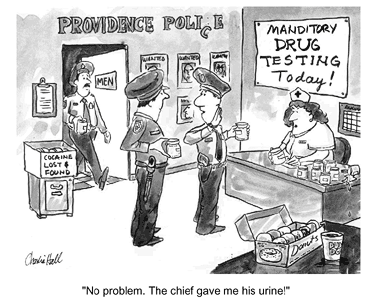THINKING…..Still thinking….
Here we go again…thinking of something I can write here in my blog about our new topic regarding animal and plant toxins, but nothing seems to come out of my thoughts. It was just an empty and vacant space filled with NOTHING.
 |
| think...think...think... |
Almost an hour thinking, how will I start with the new topic? I don’t even know how I can even find words to express what I think about right now. I am literally toxic at this moment, really, really toxic.
Is it really this hard? I asked to myself. I know I am not a great writer but somehow I think I have the guts to try and do it, right?
Finally, while watching the news on GMA 7 about a Malaysian cosmonaut who became successful on his work and study about the outer space, I’ve heard this magic word came out from him saying “you should know how to think out of the box”. After hearing these words, I am puzzled and try to explain to myself what does he mean about it? And from here, I gain inspiration to start writing.
 |
| Finally... |
Encounter with an Animal or Plant Toxins
I never had an encounter with plant or animal toxins but I have heard a lot of stories about people around me who experienced being bitten by a dog, kitten (cat), snakes, being sting by a stingray or bitten by spiders but the good news about this was that all of them survived from these traumatic experiences. And they should really feel blessed about it.
Even with those people being toxic with certain types of plants I‘ve never seen or encountered one personally, I only based what I know from what I’ve heard in the news as well as with what I see on the National Geographic Channel and Discovery Channel or what I read from magazines or news articles.
So those things that I will write on my blog about animal and plant toxins are not of personal encounter but our only based from the things that I have heard, seen or read on news, magazines or television programs, but hopefully I can give you a logical and rational information about them. And our topic for this time will just be focused on two important terms related to toxicology and these are:
ANIMAL and PLANT TOXINS
What is an Animal Toxin?
Animal toxins are substances (chemical or physical) which are being produced by animals that provide toxicity or harmful effects on other living things, most especially to humans. Some animal toxin can be quite dangerous if not treated readily; it may cause coma or even death. These animal toxins being produced by certain type of animals are one of their important defense mechanism to other fight other living organisms which tries to harm or destroy them.
Some examples of animals producing toxins are snakes, scorpions, stingray, cone snail, spiders, octopus and pit-vipers. We should be more extra careful when encountering with these animals because we are not familiar on up to what extent could the damage is if they attack us. Most of there mechanism of actions are paralyzing certain parts of the body once you’ve been attacked by them. I will provide a table coming from a certain website about animal toxins and here is the sample:
| C A R D I O A C T I V E T O X I N S | ||
| Cardiotoxins/ cytotoxins | Act on membrane lipids/proteins of blood cells or heart cells | cobras, scorpions |
| Digoxin-like | Cardiotonic steroids that produce severe arrythmia of heartbeat | toads |
*PS you can see the full copy of the table in this website:
Plant toxins are substances produced by plants which can cause harmful effect or destruction to certain living organism especially human beings. Just like animal, certain plants also generate toxins for their protection or use it as their defense mechanism to some harmful organisms which tries to damage or destroy them.
 |
| sample of wild mushrooms |
The toxins of plants have similarities and differences as compared to animal toxins mode of actions, but the extent of damage is more likely similar where in, it can be of not of serious damage up to a lethal serious damage which can cause coma or even death to certain individuals when infected by them. Knowledge about this plant toxins can help you distinguish what certain kinds of plant should be avoided, here are some examples of them:
- hemlock - poisonous drug derived from an Eurasian plant of the genus Conium; "Socrates refused to flee and died by drinking hemlock"
- curare, tubocurarine - a toxic alkaloid found in certain tropical South American trees that is a powerful relaxant for striated muscles; "curare acts by blocking cholinergic transmission at the myoneural junction"
 |
| Curare Plant |
- strychnine - an alkaloid plant toxin extracted chiefly from nux vomica; formerly used as a stimulant
- nicotine - an alkaloid poison that occurs in tobacco; used in medicine and as an insecticide
- brucine - a bitter alkaloid poison resembling strychnine and extracted from nux vomica.
References:
http://library.thinkquest.org/C007974/4cla.htm
http://www.ehow.com/facts_7577705_plant-toxins-wild-mushrooms.html
http://www.horse-owners-world.co.uk/poisonous/cuckoo_pint.html
http://www.yourstory.in/component/blog/comments?pid=6788
http://www.ehow.com/facts_7577705_plant-toxins-wild-mushrooms.html
http://www.horse-owners-world.co.uk/poisonous/cuckoo_pint.html
http://www.yourstory.in/component/blog/comments?pid=6788
http://www.dimensionsguide.com/size-of-an-octopus/
http://animal.discovery.com/fish/stingray/
http://www.earthlife.net/chelicerata/scorpionidae.html
http://www.animal-wallpaper.org/snake/default.asp?pindex=2
http://o5.com/4-rs-to-better-memory/25036-clipart-illustration-of-an-orange-person-rubbing-his-chin-while-thinking-creative-thoughts-with-four-bubbles1/
http://studentofexperience.wordpress.com/















